Fanny has a distinguished place in rock and roll history as the first all-female rock band to record a full-length album (the self-titled Fanny in 1970) for a major label. In this pioneering band, June Millington sang and played guitar, and her sister Jean Millington played bass guitar. Fanny released a total of five stellar albums in the 1970’s (the last without June), and toured with many of the era’s biggest artists. Both June and Jean played on albums by Ringo Starr and Barbra Streisand. June also played guitar on Cris Williamson’s classic Women’s Music album Changer And The Changed, and co-founded the Institute for the Musical Arts. Jean also performed on albums by David Bowie and Keith Moon. The sisters recently released the album Play Like A Girl.
This interview with June and Jean was conducted by phone on 8/19/11.
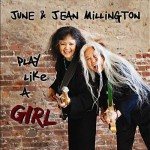
Jeff Moehlis: I’ve been enjoying listening to your new album [Play Like A Girl]. Can you talk a little bit about that and how it came together?
June Millington: I would say that it was a confluence of things. One is, Jean’s son is a great drummer, and he’s been playing off and on with us for about ten years. So we know that if we ever have material that we want to perform or record, then he’s there for us. He’s really, really good. So that’s a fun aspect that’s always in the mix.
The other thing that happened was I shattered my left kneecap about two years ago, in a really odd accident which was I was walking out of our own barn here at IMA, where we do our own Rock ‘n Roll Girl’s Camp, and I slipped on our own handicap ramp [laughs]. I shattered my kneecap, and what happened was I was immobile for, I think, two months. I had to have an operation, and then physical therapy. And somewhere in the middle of physical therapy the song “Play Like A Girl” came to me from out of a dream. So now I see it as it happened for many reasons, and that’s one of them. So the second verse to “Play Like A Girl” which is “Two little girls staring out at the sea / Water touching China, it’s as blue as can be”, in fact we were standing in the China Sea when we went to my mother’s hometown in the Philippines when we were kids. So that song came to me as a gift, literally overnight, and Jean and Lee [Madeloni] happened to be here for his birthday, kind of a family gathering, and I mentioned it to Jean, thinking we really should record it. We managed to slip ten days of recording in between Lee’s birthday, which is in March, and the start of our Rock ‘n Roll Girls Camps.
What was great about that schedule, I mean we had to literally cram ten days in, was that right after we recorded was pre-teen camp, and all the girls at pre-teen camp sang on “Play Like A Girl” as the encore of their show. Because we have a recording studio in the barn now, and it’s connected to the performance, we were able to set up a special mix, and take a little break, and make it an event. That’s all on video, and it’s very, very powerful. So, essentially what I’m saying is that the entire experience is bridging from when Jean and I started as kids playing ukuleles and then acoustic guitars, to electric guitars in ’65, bridging our entire career essentially through our playing and what we’re saying now. That’s all contained in the album, in that one song.
And, as you know, there are twelve songs so there’s quite a bit of material and it’s really varied, and that’s because of our own interests and the longevity of our career. The fact that we’re still alive, believe me, is amazing to me. I never thought [laughs]. Number one, in the ’60’s one of the catchphrases was “Don’t trust anyone over 30”, and I actually believed that, you know, in ’67, ’68. And then here we are, I’m twice over that and I’m still playing, so it’s pretty amazing.
Jeff M: Do you have any plans to tour in support of the album?
June M: Yeah, we’re playing here on the East Coast a couple of gigs. We launched Wednesday night at the Highline [Ballroom, in New York City]. We’re playing here tomorrow at the Institute for the Musical Arts in the barn, where the whole thing happened. We’re playing here as a benefit for the IMA. And then we’re going to California in September, early October, but unfortunately we don’t have anything in Southern California yet. Right now we have Berkeley, Santa Rosa, Davis, and University of Southern Oregon and up into Portland and Eugene. That’s what’s booked for about a two week stint. And then we’re just booking musical jaunts from there as they happen.
The thing is, for us, we’re not going to play for free anymore, so it becomes a little bit of an ordeal to book gigs, because the days of flinging ourselves against the musical wall, as it were, and hoping we don’t lose money, that’s over with. So it becomes a bit more of a formal structure to get things to happen.
Jeff M: You mentioned the IMA, which I guess is where you’re at right now.
June M: I’m sitting in the living room at the Institite for Musical Arts, yes.
Jeff M: Could you give a quick summary of the mission of the IMA?
June M: IMA is to support women and girls in music and music-related business. I mean, that’s in the mission statement. The subtext, which is also in the mission statement, is to give particular attention to women of color and single mothers. As a result, at our Rock ‘n Roll Girls Camps, if we are approached by a single mother and she needs help getting her girls to camp, we will respond to that. Because, as you can imagine, single mothers have a hard time supporting and raising their kids. And Rock ‘n Roll Girls Camp is something that really adds a nurturing and confidence-inspiring component to these girls’ lives. No matter where they come from, and they do come from different social and class strata. They all come.
I mean, we don’t try to edit the content of the girls coming to camp. In fact, you don’t even have to play an instrument to attend an IMA Rock ‘n Roll Girls Camp, because we have three instructors, three sets of classes a day, and we have all the equipment that you would ever want in the barn, including a recording studio. It unfolds in its own way every time, and works, somehow we’ve figured out a way to make it work.
IMA is a way really for me, personally, to give back to the fifteen and sixteen year-old girls that Jean and I were who started in 1964/65 with an all-girl band and had no support and no way to get information. We had to just make it up ourselves. So now we have a place where its codified, and the bureaucratic structure’s there, and not only the bureaucratic structure but the actual materialization also. We have twenty-five acres and a barn, two barns in fact, but the larger barn is converted to a facility that hosts the camp. Then we [June and partner/IMA co-founder Ann Hackler] live in the house, and it’s pretty large. It’s an 1816 estate outside Northampton, Massachusetts. And Northampton, I don’t know if you know this, is the Five Colleges area. They have five colleges here, so it has that infusion of the intellectual aspect of any group of people who get together with colleges and universities, but it has also got a lot of great music here. I mean, Ray LaMontagne lives down the street, for example. It’s quite an infusion of minds and music and different lifestyles here, which is great.
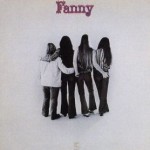
Jeff M: Of course, you’re well known for being in Fanny. Could you reflect on the legacy of Fanny?
June M: On the face of it, the legacy of Fanny is that we played at all. That we defied the odds, that we learned how to play our own instruments and learned the mechanics of being in a band all on our own from ’65 to ’69. By the time we got to Hollywood we could play, we knew how to set up a P.A., we knew how to book gigs, we had all of that basically covered. And then it was honing all that with recording skills with our producer Richard Perry, who’s really good. So the fact that we, number one, did it, and number two, were good and always got better. We worked really, really hard. You have no idea how hard it was to do it. When I say you, I mean people in general. I’m actually writing an autobiography, and it’ll get a little bit into the depth of just what it was like for us. It’s almost indescribable. So it was a tremendous effort. The fact that we did it at all, and we knew other girls were going to come after us, is a huge accomplishment.
That being said, after leaving Hollywood and that rock and roll part of my life, which I’m returning to in an interesting way right now, I got involved in Buddhism and Women’s Music, which is also very spiritual and feminist. A lot of other parts that I needed to welcome into my life were actually contained in Women’s Music, so that was really good for me. After going through Women’s Music, Jean and I actually did an album during the disco years called Millington, so there’s a lot of music that was going on all through the time that I left Fanny. And Jean had “Butter Boy”. A lot of music.
And co-founding IMA in 1986, we got our 503 [nonprofit status] in 1987, essentially what we’ve been doing since then is building the foundation of this place to make sure that we can pass it on, because this is our biggest legacy. I mean, yes the music, we got the music, and now we’re very interested in doing a direct transmission by standing onstage and just playing our fannies off [Jeff M laughs]. So that direct transmission is, to me, the quintessential component along with this site, and everything that gets left to the future generations, because the physicality of this place, the twenty-five acres, all the equipment, the barn, the archives, gets passed on to the girls. And everyone who comes to camp, the first day I announce that. You know, “Look around, this is your place.” So we get the care and feeding of our souls, because we’re reaching back to where we were at fifteen and sixteen, starting out. We’re giving ourselves that solace now by doing direct action in the moment.
You know, really, time bends because with these camps. Our very first was 2002, we didn’t know what we were doing; I mean, we ran electrical lines from the house to the barn, we didn’t have enough places to plug in. But clearly I could just see in every single camp we do it’s like looking at myself [laughs]. Because they all are going through the same thing. How do I do it? Gosh, how do I find the confidence? I’m scared. How do I learn how to do countoffs to songs? All that kind of stuff that has to come together. You have to realize that there some sort of responsibility involved, you can’t just bash about and everybody plays loud. It’s a conversation. So these girls learn how to settle down and realize there’s a responsibility here, you have to work hard, and P.S. this is a conversation. And you can take that out into life. You don’t have to talk loudest all the time. That’s a big deal.
Jeff M: You mentioned working with Richard Perry. Geoff Emerick was the engineer on the third Fanny album, then Todd Rundgren was the producer on the fourth album. I’m curious, what did those different individuals bring to the music and the recordings?
June M: Well, Richard is very much a taskmaster. The good part of it for us is he was very interested in teaching us how to record, how it was done. Working with a click track, how you get sounds, how you put the components together, how you played less to get more, how the pieces come together. That was extremely great training for us. Where we started to get frustrated was when we had learned how to do that, then he kept trying to contain our sound even more. Like, he would literally come up to my amp and turn the sound down, you know? You can talk to Jean about this, but he might have done that to Jean as well. But she definitely saw that happen to me. That was a defining moment over and over and over again for us, that he wanted to control it so much and we felt like, hey, we’re growing up here. We’re girls turning into young women right in front of your eyes. It was both really great, and just like anyone else growing up, you want to have some say in the whole matter.
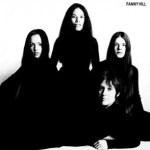
Geoff Emerick was just a complete and total sweetheart. The thing is, he so knew what he was doing. And we found that the better that people are, in this case mostly guys, the more relaxed they are. So here Richard would be trying to control our sound at Apple Studios, and Geoff would be so accommodating to me and he basically took my side. Which is part of why I think Fanny Hill has that kind of edge to it, because we got to turn up just a little. You had somebody like me turn to someone like Geoff and say, “How did George Harrison and John Lennon get their guitar sounds?” and he just backed me up by saying “Well, they gave me their sounds and I miked it.” And that really is a true story. That was wonderful.
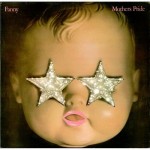
Then Todd was like going back the other way. He was like a super control freak. And we got good results, but that was really trying, and there’s going to be some anecdotes in the autobiography that go into that in a little bit more depth. You know, I guess I walked away from the Todd Rundgren experience not feeling so great about that amount of wanting to have control. I mean, he didn’t want us there for the mixes. I literally kept kicking at the door until they opened the door. And I was the only one who did that [laughs]. I was kind of a pain in the ass, you know, because I always wanted to be involved in everything. But I was interested, I was very interested.
Overall, I’d have to say that I’m really grateful that we worked with all these guys, because from every situation we learned something, and we can pass that on now. I’ll tell you, one thing I’ve noticed about people recording now is they have no scheduling skills. They don’t even know how to do pre-production. They think it’s just like what’s the interface you’re using. Are you kidding? To me it’s still the musical component, and how you plan everything and organize everything to fit. It’s not just, you can edit [laughs]. So I’m really old school, but that’s what I learned. And it works.
Jeff M: Were there any musicians back when Fanny was active that you found particularly supportive?
June M: A lot of them. Lowell George would be at the top of the list. He was extremely supportive. He taught me the lick that became “Charity Ball”. And Jeff “Skunk” Baxter, still a really good friend of mine. For Jean, Will Lee was great, a great friend, a great mentor.
It just goes on and on and on. I mean pretty much anyone we did gigs with that was good, we could say, “Could you show me something?” And we took advantage of that. We did a lot of gigs with Edgar Winter. I should actually write down all the people that I feel like I could sit down with for a minute to ask something. There are just scores of them. The guy from Chicago, my God the guitar player who accidentally shot himself playing roulette with a gun backstage or wherever he was [Terry Kath], he was a great player. Nobody talks about it because they all talk about that accident, but he was a great guitar player. He used to come backstage with his guitar and just show me new licks he was discovering. He was really a great, great guy.
Jeff M: What advice would you give to an aspiring musician?
June M: I’d say, number one, practice. Eat well and get enough sleep. And learn how to schedule, learn how to prioritize. This is a business, it’s not all just glamour. It’s not a hologram. It’s a lot of work. So if you can get your head behind the work part, then all the exciting stuff happens. And if you can not blast yourself out of the universe through bad eating and sleeping habits – it can’t be that forever, it can be that for a bit but it can’t be that forever. So you just kind of have to fit all that in, because, you know, it’s so much fun [laughs]. But the fun isn’t the thing. You get to the fun through hard work. I bet that’s kind of dull and boring, but that really would be my advice.
Jeff M: Well, you’re speaking from experience. I’d also like to ask, would you like to set the record straight on anything?
June M: George Harrison did not think of the name Fanny. It’s amazing how many people repeat that story. What? We didn’t meet George until ’72. Fanny, the first album, was ’69. I mean, you do the math.
[June hands the phone over to her sister Jean]
Jean Millington: Hi, this is Jean.
Jeff M: Hi, thanks for taking the time to talk to me.
Jean M: You’re welcome. We’re probably not going to talk for long because June I think said it all. [laughter all around]
Jeff M: I have a few new questions, and a few that are the same. You and June just released the new album Play Like A Girl. Could you comment on how that all came together?
Jean M: Well, June is quite the prolific songwriter, and just because we’re not actively playing doesn’t mean that she doesn’t write. I think she wrote “Let Love Linger” in 2002, or something like that. It’s been quite a while. So once she wrote “Play Like A Girl” it just seemed like the right time to finally get all her new tunes like that onto CD.
Jeff M: Here’s another one I asked June. Of course you two are best known for being in Fanny. Could you reflect on Fanny’s legacy?
Jean M: The thing is, like June said, when we first started playing it was really unheard of. In so many ways I feel like we’ve blazed a trail, even though there certainly were other all-girl bands around. But none of them had a major label record deal like Fanny did. And we toured extensively, we did all that. So in other words, we were able to prove that women could be a self-contained band.
Now, they call groups like Destiny Child a band, and I just so disagree with the terminology. To me, a band is self-contained. You write, you sing, and you play your own instruments. So in that way, Fanny was quite innovative. For instance, The Runaways were put together by Kim Fowley, and we do remember one time we were playing at the Whisky A Go Go, it was the New Year’s Eve gig or something like that, and Kim was doing his number backstage. He used to come to a lot of our gigs. And we remember this one time he came to us and he said, “Hey, guess what? I’m gonna put together a band, and I’m gonna call it The Runaways.” So in that way The Runaways were not an organic band. They didn’t come together by way of how fate would have it, if you know what I’m saying. So in that way, we definitely did show and prove not only to the world but to ourselves that we could do it.
Before we ever went down to L.A. and got the record deal and did all that… I mean, I was probably fifteen when we decided we wanted to stop playing folk music. We wanted to have a band. Didn’t know exactly what that meant, or what we would play, but we just knew that we wanted to start performing electric music. So I guess I was eighteen or nineteen when we signed with Warner Brothers, and so we had three or four years of all these gigs. We played so many different clubs. In those days there were so many venues, which was a wonderful thing. And we did county fairs, we did Air Force bases and Army bases. We used to play at Fort Ord, and that was quite a tremendous experience as well because that was during the Vietnam War, and I remember a couple of times we played there the guys had just gone through basic camp, and we were the last entertainment they were going to have before they were deployed to Vietnam. Really profound things like that.
But back to your original question, about the legacy. What I’m saying is that we were a self-contained band. We figured out how to rent a trailer, I got quite proficient with pulling a trailer. We used to carry our Hammond B-3. You can imagine three or four girls lifting a B-3 and a Leslie – it was really something else. So we did all of those things. We were absolutely a self-contained band. We really did show that girls, women, were capable of doing this.
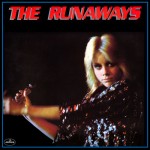
Jeff M: You mentioned The Runaways, who got a huge amount of publicity recently [with the release of the movie called The Runaways]. How did you feel about all that, because obviously Fanny did come before them and a lot of lazy journalists were billing them as the first all-female rock band?
Jean M: As you can well imagine, I had a lot of mixed feelings about it. You know, on one hand bless their hearts, they got their story out there and they got all that publicity. But, I couldn’t help but be somewhat upset and jealous that they were getting all that publicity, and we had come before them and really in so many ways blazed the trail. So it was rather disconcerting on certain levels, that a lot of people just presume and think that they were the first all-girl band. It’s just ridiculous. And there wasn’t only us. There were The Freudian Slips from San Francisco, there were The California Girls from down in the Palo Alto area. I mean, there certainly were other girl bands who played way before The Runaways ever did.
Jeff M: Are there any musicians in particular that you feel were particularly supportive of Fanny when they were together?
Jean M: You know, like June said so many of the bands that we opened for when we were touring. This is part of the thing, that literally every single gig we played when we started doing the larger venues, at least the first ten minutes, all we were doing was proving we could play. On one hand it was extremely tiresome, and on the other hand it turned out, because we were such musicians and we were good, by the time ten minutes passed we had a lot of converted fans.
June already said Lowell George from Little Feat, who really was so helpful to her. And Will Lee, who plays with the David Letterman Band, he was so much of my influence for really learning how to play the slap bass. I hung out with him, and he has this funny story that he used to tell his friends that I asked him something and he went off and took a shower and when he came back, there I was doing the licks he had shown me. It just blew him away.
I wish I could remember all the musicians, but basically whoever we played with was, as June said, if someone is secure, then the nicer they are and the more magnanimous they are, and they’re willing to sit down and show you and share with you in so many ways. I would say, “Hey, that tune, how did you do that?” And for the most part the guys would comply.
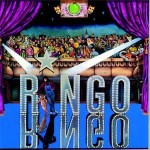
Jeff M: In the booklet for the Rhino box set, it says that Fanny played on Ringo Starr’s album Ringo, but uncredited. How did that come about?
Jean M: That was because Richard Perry produced Ringo’s album. So then, of course, he asked us. I mean, we didn’t play the whole album. Frankly, I just don’t even remember, it’s been so long. I haven’t listened to it. I have absolutely no recollection how many tunes I played and sang on. But it came about because of the association with Richard.
You know, another time both Nickey [Barclay] and I cut an album with Leon Russell. And then at one point Nickey and I also played on Keith Moon’s solo album.
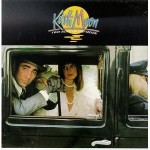
Jeff M: I’ve spoken to other musicians who have played on Keith Moon’s solo album. It sounds like it must have been quite an atmosphere there.
Jean M: Well you know what? When we played, as I recall it wasn’t a whole bunch of people. It was pretty much one on one. It wasn’t like this whole production. So I think we played on one, maybe two songs – I honestly don’t remember.
And even with Ringo, a lot of it was overdubs. Ringo wasn’t even present. At some point we had direct contact, but a lot of it was just the overdubs kind of thing.
One other person that we did play with was Barbra Streisand.

Jeff M: I understand that for at least one of the albums, that was cut live, right?
Jean M: Yes it was. And I have to say at that time – everyone knows who Barbra Streisand is and all that – she was actually quite gracious. I remember just being completely blown away. I think “Where You Lead” was the track that we had just cut, and then Barbra proceeded to get up and do a vocal, and then she proceeded to do a second vocal that was really different from the first vocal. I mean, that was just beyond my experience. She was very kind to us, and she sat and laughed and had a good time. It was really a wonderful experience.
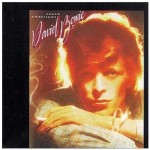
Jeff M: Another thing I think it’s cool you did… I’m a big David Bowie fan, and I understand that you sang background vocals on “Fame”. What was it like working with Bowie at that time? And was John Lennon around?
Jean M: John Lennon was not around at that time. I more or less hung out with David for a period of a year, year and a half, and I happened to be in New York when he was cutting that album. I was hanging out with David in the studio, and he decided to put background vocals on. So it was really just quite on the spur of the moment. You know, I was just hanging out with David. And he was extremely gracious, all the way around. He was very supportive, and the liner note that he wrote for Rhino Records was really quite something. I was quite touched when he wrote what he did.
[From the liner notes: “One of the most important female bands in American rock has been buried without a trace. And that is Fanny. They were one of the finest fucking rock bands of their time. They were extraordinary: They wrote everything, they played like motherfuckers, they were just colossal and wonderful, and nobody’s ever mentioned them. They’re as important as anybody else who’s ever been, ever; it just wasn’t their time. Revivify Fanny. And I will feel that my work is done.” – David Bowie]
Jeff M: What advice would you give to an aspiring musician?
Jean M: It’s so funny that June said what she said, because I haven’t heard that. But the first thing that I would say is make the decision that nothing’s going to stop you. And practice your butt off. Because that’s the only thing. When I first started learning how to play slap bass, I literally sat in my room for three months, and that’s all I did day in day out. I got tunes, I played along with them, I learned how this thing went. What they call woodshedding. I’m sure they don’t use that term anymore, it’s so ancient.
And one of the most important things is also to keep your mind and your health together. It’s so easy to get caught up with all the addictive behavior, because it’s so darn inviting and seductive. So, I mean, when you’re young, of course you’re going to do that. But the thing is, it’s about trying to keep a balance, to stay in the middle ground. And moderation is the key. The most important thing is you have to take care of yourself.
Jeff M: Do you have any specific advice for females, or pretty much the same?
Jean M: Pretty much the same.
We really thought it would’ve changed so much by now, the attitude toward girls. It hasn’t really changed, and as a matter of fact, with all the single performers, it’s become more sexist than ever. It’s just unbelievable to me, what even say Beyonce has to go through or Rihanna. I mean, the kind of images that they try to live up to. But that’s with the pop music.
KT Tunstall, I just so admire her. She plays like a dream, her compositions are great, it’s very original. And she retains her sense of rock and roll looking sexual, but not being that overt horrible thing. And I very much respect that.
But there still aren’t any girl bands out there. You have all of the individual performers that you admire. You have women as musicians who are recognized just for being a musician, but it’s not an all-girl band.
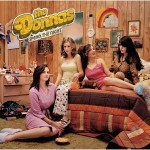
Jeff M: I like The Donnas. They’ve been around since the late 90’s. They came through town recently, and really just blew the place away. There are some, but certainly it is a rarity.
Jean M: It still is nowadays. It’s still surprising, but you know, it’s a man’s world as the song says.
Jeff M: Do you want to set the record straight on anything about the music, the band?
Jean M: When we first started out Fanny was very much a rock and roll girls band. I mean, we played in jeans and T-shirts, and of course we had some make-up and whatever, but it was really because of the record company and their desire to have us be more accessible, so that meant more sex appeal. They wanted us to be more sophisticated, and we did go into the whole thing with Mother’s Pride and the costumes that were made by Warner Brothers, the movie people and all that stuff. We kind of got, in a way, really moved into trying to have a more, for the lack of a better word, sophisticated look, even though to me they just wanted us to be more sexy and appeal in that way. It wasn’t part of our natural evolution. But still, as far as I’m concerned, our playing always spoke for itself.
Jeff M: Well, that was getting into the glam era also.
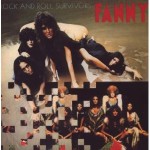
Jean M: Yeah, after June left the band and Patti Quatro, Suzi Quatro’s sister, was in the band, that was when all that glam rock was happening. Rock & Roll Survivors was thought of basically as a rock opera, so we did that whole thing. We came onstage, we had the capes, we had the masks, and recited some stuff, and whatever. So we were totally into the glam rock thing, but as far as I’m concerned we still really rocked.

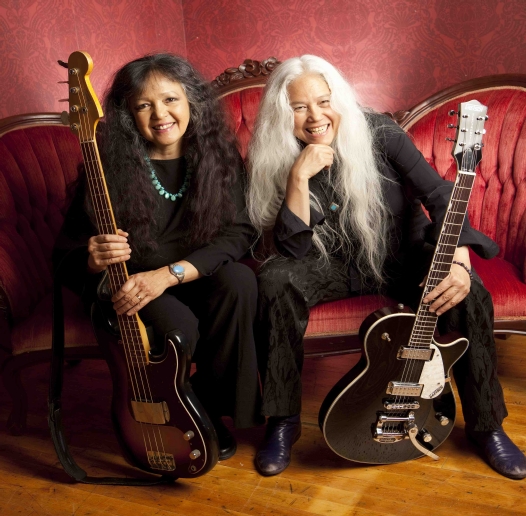
very nice. Happy to know many interesting things.
I really enjoyed this article. I’m a guitarist who played all over New England from ’68 to 2001. My band Momma’s Little Jewel opened for Fanny at the Crystal Lake Ballroom in Ellington,CT. in ’73 and they were great. I recently contacted June on Facebook and she was very gracious.
Her rock ‘n roll camp for girls is a truly significant thing which will, no doubt, profoundly and positively affect the lives of many. Talk about a legacy!
John Dolan
Great interview – for both their groundbreaking role in rock history and their continuing story and advocacy for young musicians
Awesome article. There would be no Madam X or Vixen as we know it if it wasn’t for the 1rst best female rock band ‘Fanny’. They were our inspiration. They did everything themselves, they were it and should be in the rock and roll hall of fame! Thank you Fanny for your great music and talent! I bow to the real queens of rock history!
Nice to see June and Jean getting due credit. As it happened, I was in the same high school class with June, though we didn’t really know each other. Coincidentally, I also worked with their brother Jim for a few years. I still drive by their childhood home when visiting my mother and think of those days back in the 60’s and 70’s. Fanny was unique. Thanks for letting me reminisce.
So glad I found this. I’ve been singing in bands since the ’70’s and Fanny was a huge inspiration to me. So sick of hearing about The Bangles, The Go Go’s. They couldn’t cover one of Fanny’s songs if their lives depended on it. The musicianship just isn’t there. I have a set of recordings of Fanny that were live, studio, even with scratch vocals and unmixed, that are on my iPod. Alice’s scratch vocal of “Solid Gold” is priceless. My favorite song? Might be “Come and Hold Me”. Love these women!